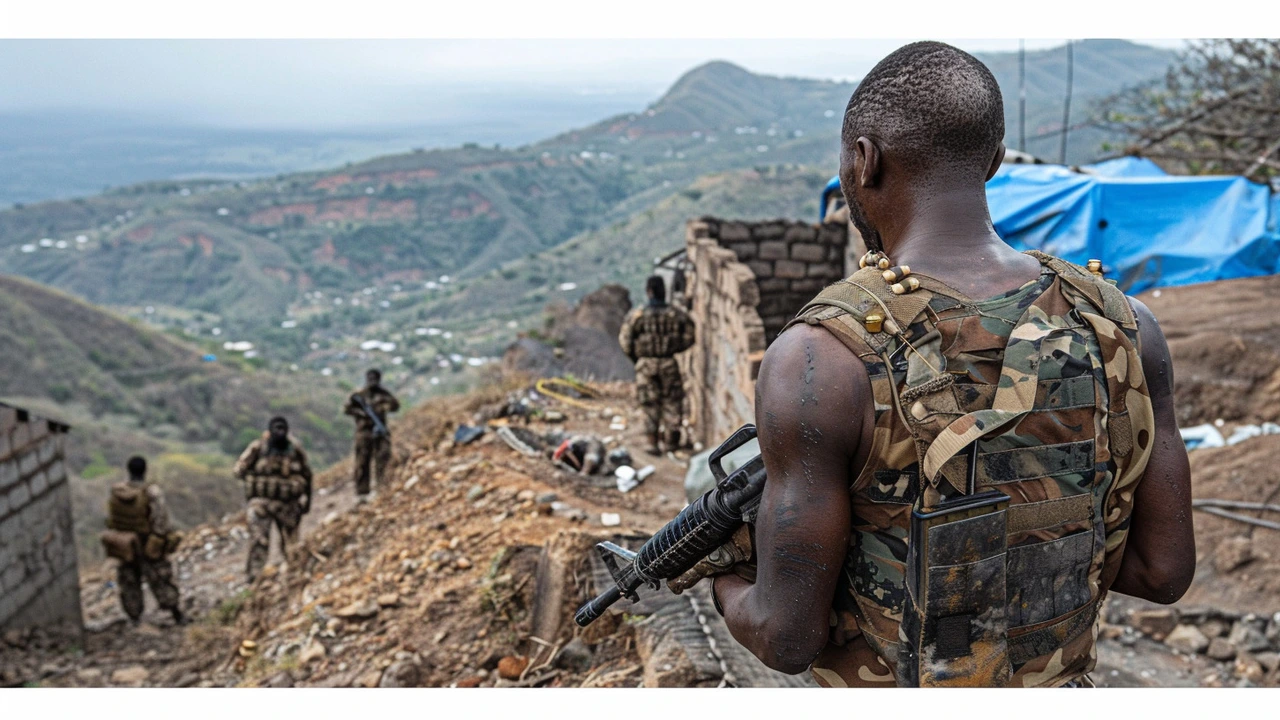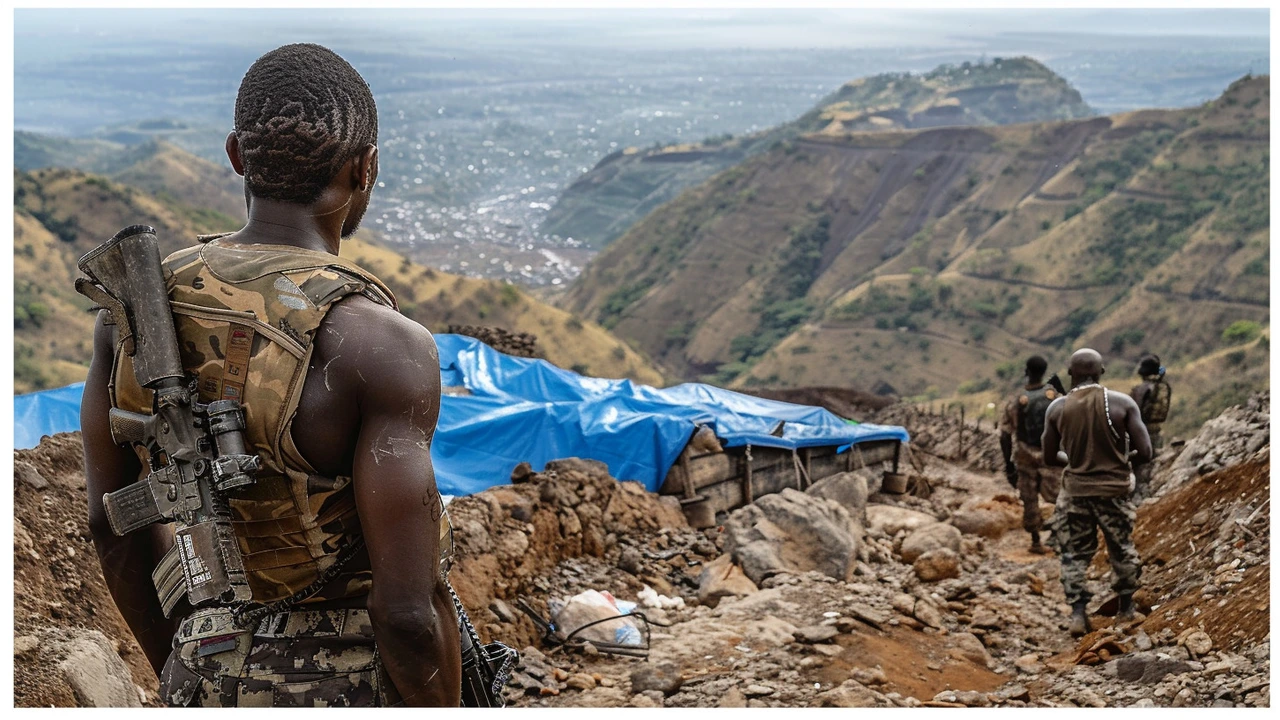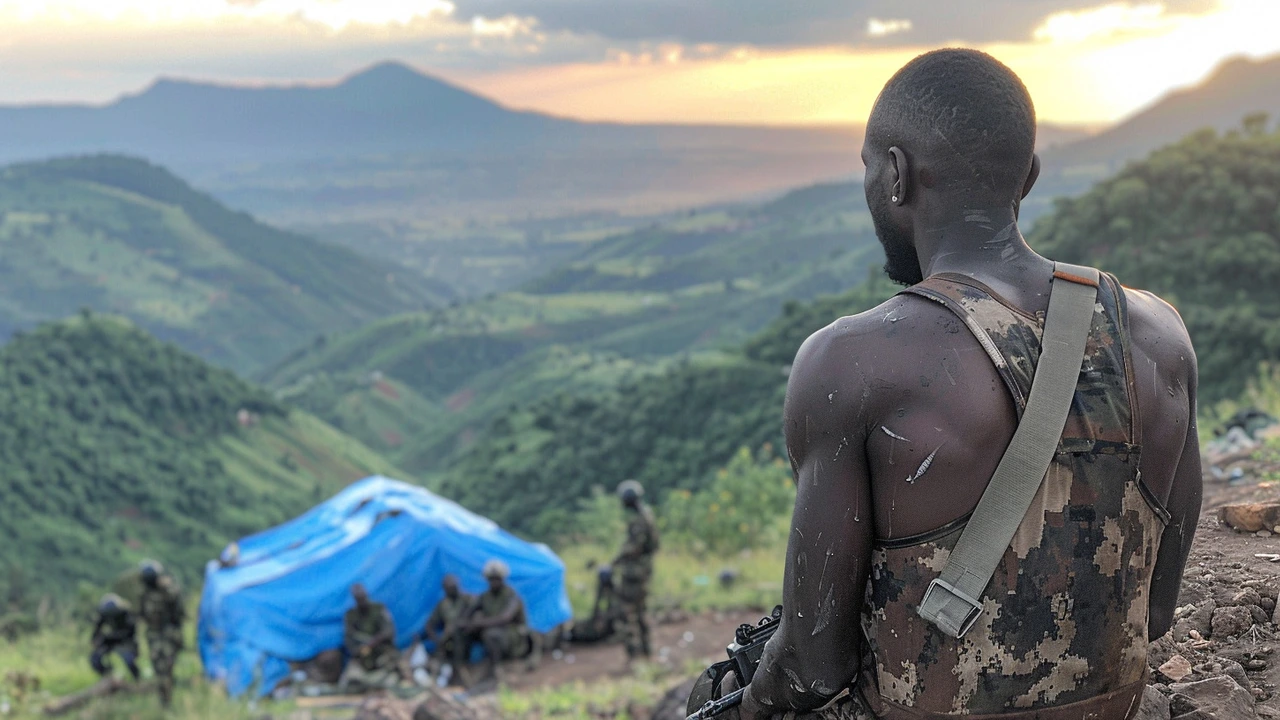Military Court's Harsh Verdict Against Fleeing Soldiers
In a dramatic turn of events, a military court in the North Kivu province of the Democratic Republic of Congo (DRC) has sentenced twenty-five soldiers to death. These sentences were handed down after a one-day trial that saw the soldiers facing charges of fleeing the enemy, specifically the Rwandan-supported M23 rebels. The soldiers were also accused of theft and violating military orders, which are considered serious offenses within the armed forces.
The trial was presided over by Colonel Kabeya Ya Hanu, who made it clear that the court's decision aims to act as a deterrent against similar incidents in the future. This move can be interpreted as part of a broader strategy by the DRC’s military leadership to enforce discipline amidst ongoing security issues in the eastern regions of the country.
Context of the Ongoing Conflict
The eastern part of the DRC, especially North Kivu province, has long been a hotspot for violence and conflict. The region is plagued by various armed groups, including the M23 rebels who have been a significant security threat. The M23 group, backed by Rwanda, has been responsible for seizing territories and strategic towns, such as Kanyabayonga, which serves as a gateway to major commercial hubs.
The decision to sentence the soldiers to death comes after a similar incident in May, where eight soldiers were sentenced on charges of cowardice and fleeing the enemy. This repetitive action underscores the military's stringent measures to curb any acts of desertion, which could potentially compromise the stability and security of the nation.

Legal and Moral Implications
The military court’s decision has sparked a discussion on the ethics and efficacy of using capital punishment to enforce discipline within the military. In March, the DRC government lifted a moratorium on the death penalty, justifying the action due to ongoing issues of treachery and espionage in recurring armed conflicts. This has raised concerns among human rights organizations, which argue that the reinstatement of the death penalty could lead to further human rights abuses.
The trials included six other defendants, four of whom were civilian wives, all acquitted due to a lack of evidence. While this may seem like a balanced approach to justice, critics argue that the swift nature of the trials and the severe sentences handed down might indicate hasty judicial processes under immense pressure from higher authorities.
Impact on Military Morale and Civilian Sentiment
Such harsh measures are likely to impact not just the military morale but also civilian sentiment. The soldiers' execution may instill fear among the troops, potentially affecting their performance and willingness to take risks. On the other hand, it could also drive some to act more cautiously, avoiding any actions that may lead to accusations of cowardice or desertion.
Civilians, particularly those with family members in the military, might view these decisions with trepidation. The human cost embedded in these sentences cannot be overlooked, and this might lead to growing unease among the local populace, who are already enduring the brunt of the ongoing conflict and displacement. According to the United Nations, over 2.8 million people have been displaced in the North Kivu province alone, further exacerbating the humanitarian crisis in the region.

A Look Ahead: Challenges and Prospects
The sentencing of these soldiers highlights the challenges faced by the DRC in maintaining order and combating internal threats. The ongoing conflict with M23 rebels and other militant groups has created a volatile environment requiring strict measures to stabilize. However, the reliance on capital punishment raises critical questions about balancing discipline with humane treatment.
As the DRC continues to navigate these turbulent waters, the international community's role becomes increasingly pivotal. Calls for more comprehensive support and intervention strategies that prioritize human rights and conflict resolution over punitive measures are growing. The DRC's path to peace and stability will likely require a multifaceted approach that involves military, political, and social reforms.
The military court’s decision, while aimed at restoring order, underscores the complex and often harsh realities faced by nations embroiled in prolonged conflicts. Whether this approach will yield the desired results or further complicate the situation remains to be seen, but the conversation around it is an essential step towards understanding and addressing the broader issues at play.

Byron Marcos Gonzalez
July 5, 2024 AT 21:50The courts have turned justice into a theatrical bloodbath 😱 The sheer audacity of sentencing comrades to death for fear is a grotesque performance.
Chris Snyder
July 5, 2024 AT 22:56It’s heartbreaking to see soldiers caught in a brutal system that values obedience over humanity 😔 The families of those condemned deserve support and advocacy.
Hugh Fitzpatrick
July 6, 2024 AT 00:03Oh great, another brilliant way to boost morale by instilling terror – because fear always makes the best soldiers, right?
george hernandez
July 6, 2024 AT 01:10The decision to execute twenty five soldiers sends a chilling message through the ranks.
The it tells every soldier that retreating from the enemy is a crime punishable by death.
The military leadership appears to believe that terror will replace discipline.
History shows that such extreme measures rarely improve combat effectiveness.
Instead they breed resentment and silence among the troops.
The soldiers who fled may have faced overwhelming odds and a chaotic battlefield.
Killing them does not erase the underlying strategic failures.
The conflict with M23 rebels is rooted in political and ethnic complexities.
No amount of executions can resolve those deeper issues.
Moreover the rapid trial process raises serious doubts about due process.
Legal scholars warn that summary death sentences undermine the rule of law.
International observers are likely to condemn the DRC’s approach.
Human rights organizations will call for investigations into potential abuses.
The long‑term impact on morale could be a decline in willingness to engage the enemy.
Ultimately the tragedy is that lives are lost on both sides while the true causes of war remain unaddressed.
bob wang
July 6, 2024 AT 02:16Dear colleagues, the reinstatement of capital punishment, particularly within a military context, warrants careful scrutiny; it is imperative, therefore, to consider both legal precedents and humanitarian implications, especially given the volatile environment in North Kivu. 📜🔍 The judiciary’s swift adjudication, while perhaps intended as a deterrent, may inadvertently erode due process safeguards, thereby inviting international criticism, which could further isolate the Democratic Republic of the Congo. 📈😊
Seyi Aina
July 6, 2024 AT 03:23Yo, this whole death‑sentence drama is just another power move by the brass to scare people into line, and it ain’t fixing anything.
Alyson Gray
July 6, 2024 AT 04:30OMG this is like watching a tragedy unfold on repeat, I cant even. The soldiers are just humans, not some expendable ammo. Its so heartbreaking to think about families left behind, they woudnt deserve this pain. The whole system is broken, and no one is wiling to listen, cuz fear has taken over.
Shaun Collins
July 6, 2024 AT 05:36This is just nonsense.